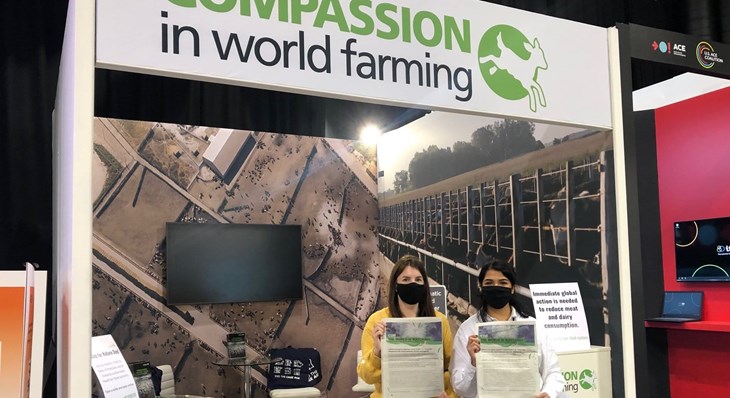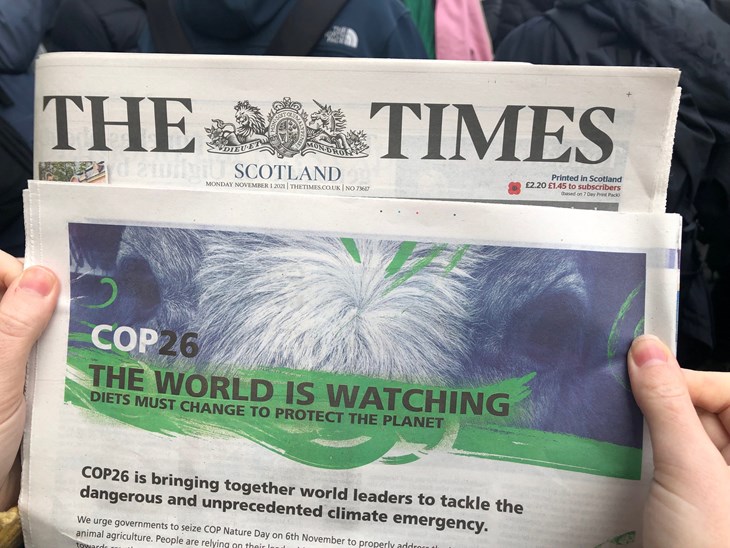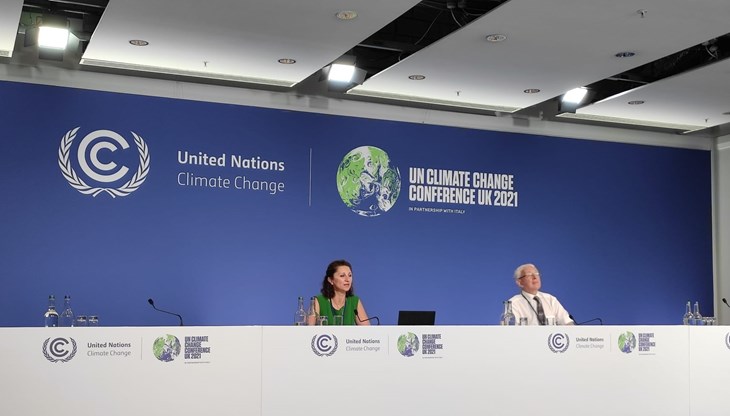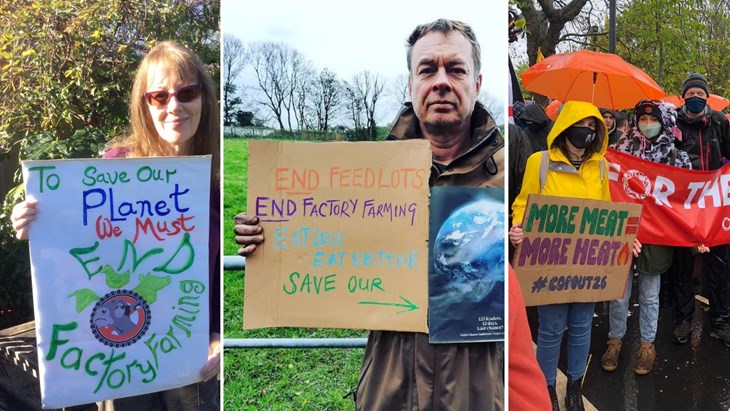From 31st October to 12th November, world leaders, minsters and influential decision makers gathered in Glasgow for COP26. The conference was seen by many as the last chance to save the world from runaway climate change.
Engaging with COP26 delegates
During the 2-week period, we were present in the ‘Blue Zone’ (a UN managed area for registered delegates only, in which all key negotiations take place) where we held a stand highlighting the need to cut global meat and dairy consumption and raise all farmed animals in higher-welfare systems. Our stand was a huge success and allowed us to engage in dialogue with numerous delegates about our work.

Spreading the word – far and wide
At the start of COP26 (1st November), we released a joint statement, which was featured in full-page adverts in both The Times and The National newspapers. The statement was signed by over 100 NGOs and prominent figures and called on national governments to address the impact of food and animal agriculture to avert a climate catastrophe. This really helped us to emphasise the urgent need for change.

On Friday 5th November, at a COP press conference, we also launched a new report – Breaking the Taboo: Why Diets Must Change to Tackle Climate Emergency. The report demonstrates the clear scientific case that without a dramatic global reduction in meat consumption we will be unable to avert a climate catastrophe. It gained widespread media coverage across the globe, form the UK to Chile, Italy to Russia, Bahrain to the USA, Poland to Syria.

Demanding action
On ‘Nature Day’ (6th November), we joined the COP26 Coalition march in Glasgow. As well as protesting in person, many of our supporters joined our online demo, taking to social media to call on the world leaders at COP to end factory farming and move towards sustainable, humane, healthy food systems.

More to be done
Whilst some positive steps were made at COP26, with pledges announced on methane, coal, transport, and deforestation, we were disappointed that animal agriculture and meat consumption wasn’t given the airtime it requires.
“Following pressure from us and other campaigning organisations, agriculture was given more prominence at COP26, particularly on Nature Day, but it wasn’t enough,” said Nick Palmer, Head of our UK office. “Diets are a key piece of the puzzle in solving the climate catastrophe but were largely ignored in COP26 discussions.
“We are extremely proud of the impact we were able to have at COP26, thanks to backing from our wonderful supporters. Our stand had a constant stream of delegates visiting each day, enabling us to drive home our message which was reinforced by our powerful new report. Our press ads were positively received, and our joint statement gained media traction across Europe and beyond. Whilst global leaders have failed to emphasise the need to reduced meat consumption and the huge impact animal agriculture plays in climate change, the media certainly haven’t.
“Over the coming months, we will continue our work to influence UN bodies to ensure animal agriculture is on the agenda at COP27, in Egypt, next year, and in other key UN processes such as the United Nations Environment Assembly and the High Level Political Forum on Sustainable Development.”
Add your name
If you haven’t already done so, please sign our petition calling on the countries which consume the most meat per capita to act to protect animals and our planet.
